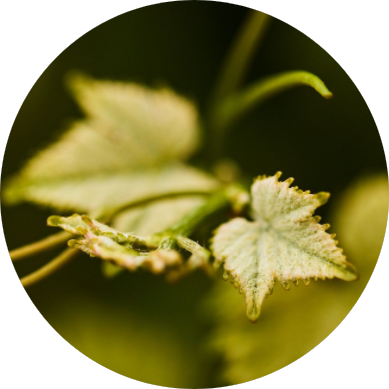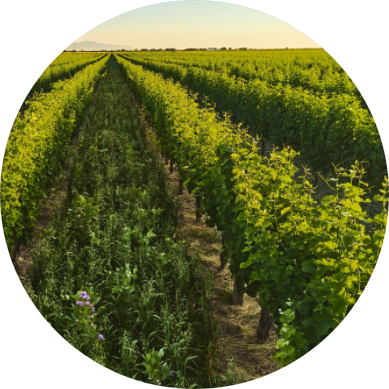Sustainability
As an intergenerational farming family, the MacDonald’s know that looking after the land and keeping it healthy, is the key to ensuring it will be there for generations to come.
A proud member of Sustainable Winegrowers NZ
Montford Estate is a proud member of Sustainable Winegrowers New Zealand (SWNZ), which has one of the most scrupulous sustainability programmes in the world. We always aim to go over and above our commitments to SWNZ, so we have implemented a range of measures that return and increase nutrients in our soil, and are committed to the sustainable and smart use of one of our most precious natural resources – water.
Inter Row Planting
Inter-row cover crops are 'non cash crop' plants, flowers, and sometimes edible crops, that are planted inter-row to support soil vitality, encourage good insects that perform biological controls on insect pests, and increase biodiversity in the vineyard. Each winter/spring, we seed a new plant mix which can include a range of cover crops like broad red clover, strawberry clover, Huia clover, chicory, Phacelia, Plantain, Sheep's Burnett, Wairau Lucerne, and common vetch.
Woolly friends
At the height of winter we have around 3,000 sheep grazing our vineyards, which not only supports the local industry by creating paddocks to feed their stock, but there's also a range of unexpected sustainability benefits too. Sheep, as a natural lawn mower, have a lower impact on the soil, which means the soil is less compacted over this time. This gives the soil a much-needed break from the heavy harvest machinery and mowers that we have to use at other times of the year. The presence of sheep in the vineyards at winter time also assists in soil health and regeneration, by creating and adding carbon and potassium-rich matter (manure) back to the soil. This acts as a natural, slow release fertiliser for the land.
Healthy soil, delicious wines
During the annual grape harvest, we spread the grape marc (the grape skins that are left over after we carefully press the precious juice out) back over the vineyards. Spreading marc on our vineyards minimises the environmental impact of waste, and also allows us to retain and return the marc nutrients and its antioxidant properties back to the soil. The grape marc also increases organic matter in our soils which is a key part of our soil health focus in the vineyards. We also mulch our pruned vine cuttings back into the vineyard soils, which helps with soil regeneration by keeping the nutrients from the vines on our lands, and is a much more sustainably-friendly option than burning the old cuttings. Mulching the canes into the inter-rows and not directly under the vines also assists with mitigating / limiting disease pressure.


